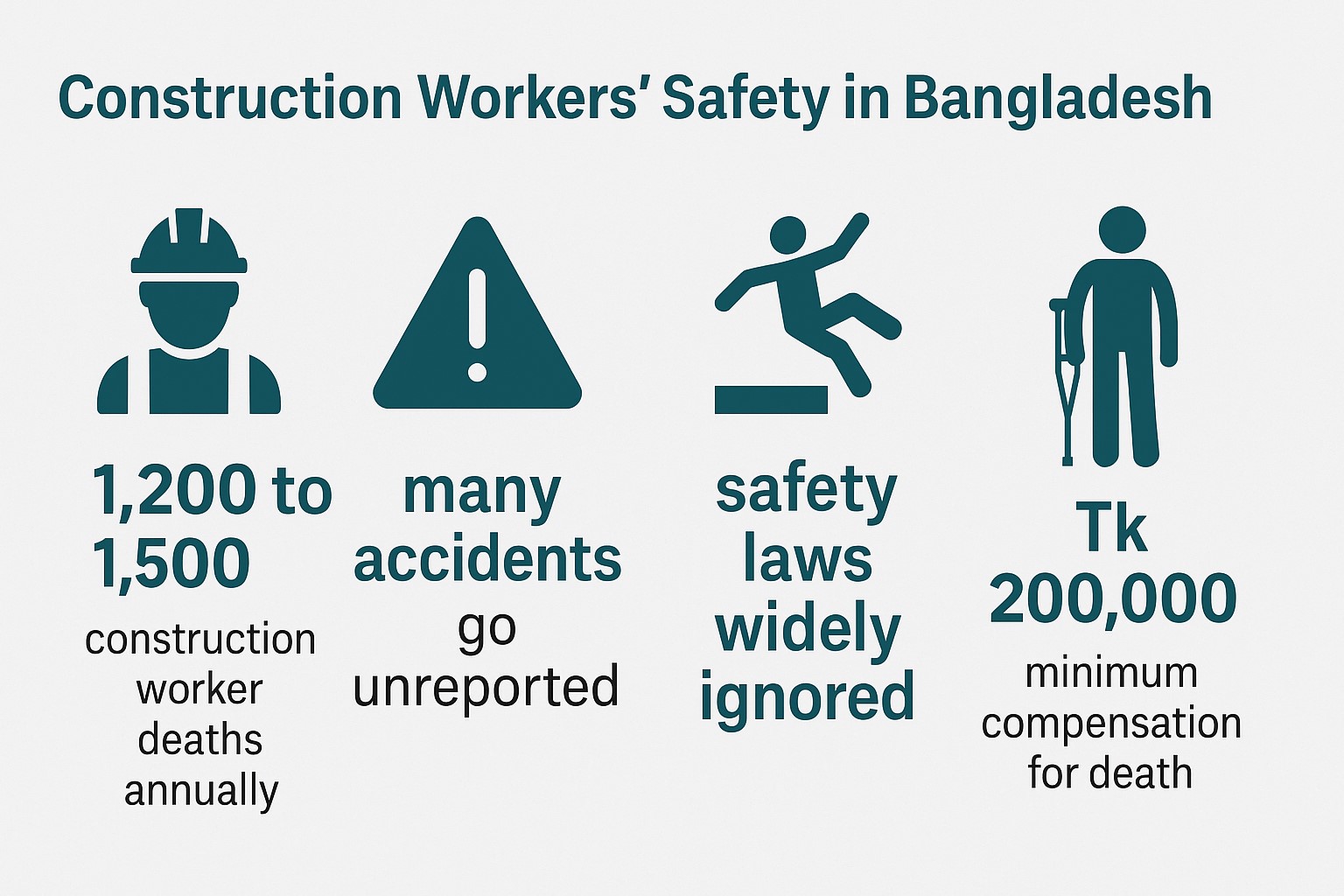Md Rashed fell to his death from a nine-storey under-construction building in Chattogram just hours before his wife gave birth to their second child. Along with Rashed, two other construction workers died in the incident on Friday. All three were from Subarnachar in Noakhali.
The tragedy is not an isolated one.
Every year, hundreds of construction workers in Bangladesh meet the same fate– falling, getting crushed or maimed on unsafe construction sites across the country.
According to Bangladesh Occupational Safety, Health and Environment Foundation (OSHE), around 1,200 to 1,500 construction workers die in workplace accidents annually, while thousands more suffer injuries or permanent disabilities.
Labour rights groups say the actual numbers could be far higher as many incidents go unreported, especially in smaller, informal projects.
Although Bangladesh has laws intended to protect workers like Rashed, compliance remains almost non-existent.
The Bangladesh Labour Act 2006 (amended 2018) clearly mandates safety nets, guard rails, personal protective equipment such as helmets and harnesses, and proper training for workers exposed to fall risks.
In reality, these safeguards are routinely ignored.
The Department of Inspection for Factories and Establishments (DIFE), tasked with monitoring workplaces, lacks the manpower to cover the country’s sprawling construction sector.
Most construction sites, especially those run by small contractors, remain outside any meaningful oversight. Workers receive little to no safety training and often work without even the most basic protective gear.
Labour rights groups say employers prioritise cutting costs over saving lives, knowing well there is almost no risk of being held accountable. Even in the event of a worker’s death, families rarely receive the minimum compensation of Tk 200,000 required by law unless there is media pressure or intervention from trade unions.
The human cost behind these accidents remains invisible in official data, but stories like Rashed’s reveal the deeper social impact. His newborn son will grow up never knowing his father, while his widow and young daughter face an uncertain future without their family’s only breadwinner.
Experts warn that without urgent reforms, including stricter enforcement of safety laws, proper registration of workers and projects, mandatory accident reporting and insurance coverage, Bangladesh’s construction sites will remain deadly for the country’s poorest workers.


